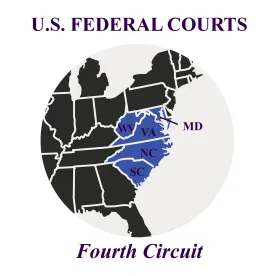In a resounding victory for public-private partnerships, the Fourth Circuit’s decision in Cunningham v. Lester, et al., No. 20-1086, — F.3d —- (4th Cir. Mar. 4, 2021) has affirmed federal employees’ immunity from the Telephone Consumer Protection Act (“TCPA”) when acting in furtherance of a government mandate. The TCPA imposes strict statutory penalties for unsolicited robocalls ranging from $500 to $1,500 per violation. But the Supreme Court has held the TCPA does not contain a waiver of sovereign immunity. See Campbell-Ewald Co. v. Gomez, 577 U.S. 153, 166 (2016). The question presented in Cunningham was whether a plaintiff can avoid the TCPA’s sovereign-immunity shield by suing federal employees for damages in their individual capacities. The Fourth Circuit ruled that a plaintiff can do no such thing.
Cunningham arose out of the Affordable Care Act’s mandate requiring the U.S. Centers for Medicare & Medicaid Services (“CMS”) to “establish a system” for ensuring that applicants “receive notice of eligibility for an applicable State health subsidy program.” 42 U.S.C. §§ 18083(a), (b)(2), (e). To fulfill this federal mandate, CMS entered into a contract with a private contractor to call individuals to inform them of their eligibility to participate in subsidized health insurance plans offered through the ACA’s health care exchanges.
The three named defendants—all CMS employees—instructed the contractor to pre-record a message using artificial voice technology and to deliver it to approximately 680,000 individuals. None of the called individuals had previously agreed to receive such a message—as arguably required by the TCPA. The plaintiff, a recipient of one of the robocalls, filed a putative class action lawsuit seeking monetary damages against the three CMS employees.
This lawsuit was the plaintiff’s second attempt at a class action arising out of the ACA robocalls. In 2018, the Fourth Circuit affirmed dismissal of the plaintiff’s first lawsuit against the CMS’s private contractor for lack of subject matter jurisdiction. See Cunningham v. General Dynamics Information Technology, Inc., 888 F.3d 640 (4th Cir. 2018) (holding government contractors are immune from TCPA liability “when the government authorized the contractor’s actions and the government validly conferred that authorization”). In plaintiff’s new lawsuit, he substituted the three CMS employees for the contractor and sued them solely in their individual capacities for statutory damages. Plaintiff argued that as long as his complaint named individuals in their personal capacity and sought monetary relief that did not require the transfer of government property, sovereign immunity posed no jurisdictional bar to recovery under the TCPA. The district court disagreed, concluded the federal government remained the real party in interest, and granted the defendants’ motion to dismiss on sovereign immunity grounds.
On appeal, the Fourth Circuit affirmed. Noting the “general rule” that “relief sought nominally against an officer is in fact against the sovereign if the decree would operate against the latter,” the Fourth Circuit agreed with the district court and concluded the U.S. government was the real party in interest—not the three federal employees named in the complaint. See Slip Op. at 6-7. The Fourth Circuit found the CMS employees were clearly acting in furtherance of the ACA’s mandate when they signed the contract with the private contractor and instructed the contractor to place automated calls on CMS’s behalf. The Fourth Circuit determined “[t]he defendants’ actions are simply not otherwise intelligible.” Id. at 10.
The Fourth Circuit’s affirmance was also swayed by the dire implications of potentially saddling government employees with a monetary judgment worth hundreds of millions of dollars. If government employees could be subject to crushing TCPA liability for nothing more than following a statutory mandate, government agencies’ ability to comply with such mandates would be severely hamstrung, the Fourth Circuit reasoned. Had the Court sided with the plaintiff, “[t]he public-private partnerships that agencies commonly rely on to meet their statutory mandates would become vulnerable to attack by litigants who, relying on this case, would artfully plead a waiver of sovereign immunity where no such congressional intent was ever expressed.” Id. at 11-12.
The Cunningham decision will likely dissuade plaintiffs’ attorneys from future attempts to hold federal employees liable under the TCPA for their involvement in making robocalls pursuant to statutory government mandates. Plaintiffs will be less inclined to attempt an “end-run” around the TCPA’s sovereign immunity jurisdictional bar by suing government workers – instead of the agencies – for monetary damages.



 />i
/>i

